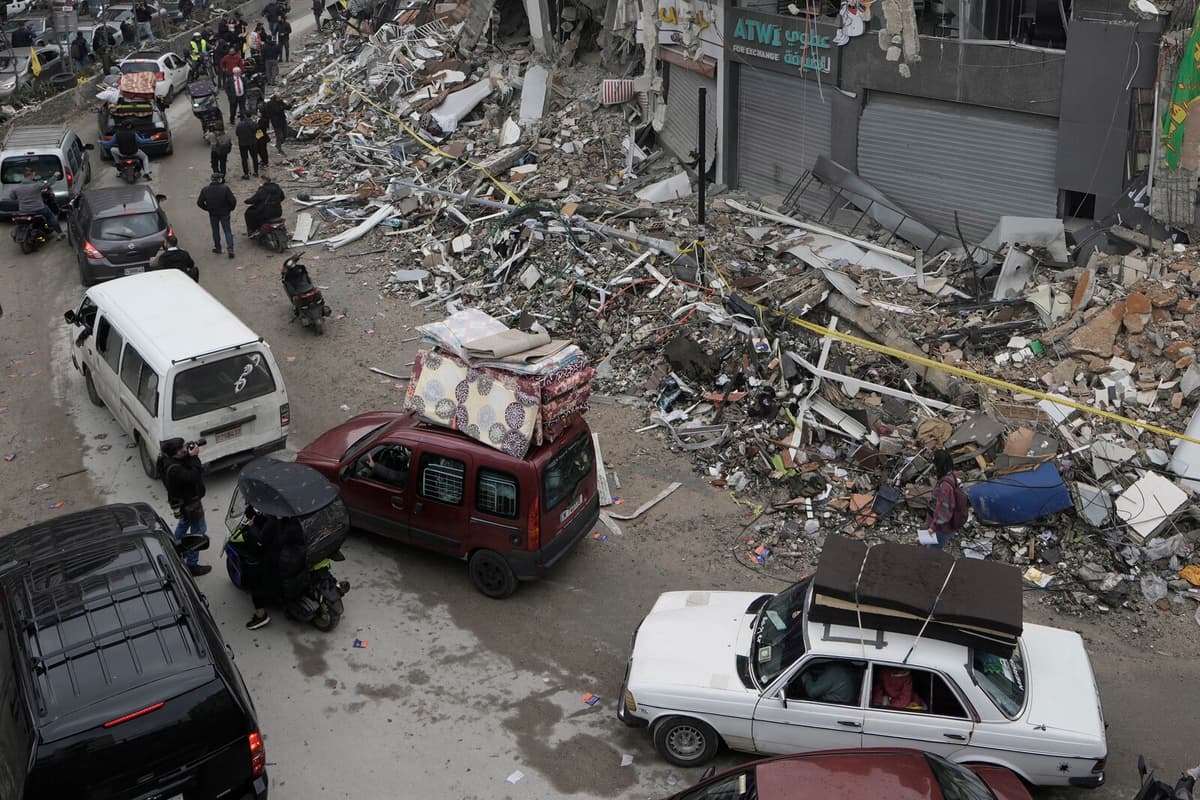All glass, window frames, and doors - everything is shattered, says Ismael Faris when he returns to his home in southern Beirut.
The testimonies from those who were the civilian victims of the war come as scattered reflections of a catastrophic time that leads to a bleak future.
Mail carrier Faris, 52 years old, tells The New York Times that he does not believe his wife and two children can move back home, he simply does not have enough money to rebuild the house:
There is no possibility that we can return under the current circumstances and it is impossible to find something new.
The Entire Household
On southern Beirut's highways, the traffic jams were endless. On car roofs and in open trunks, entire households were found: the internally displaced were on their way home.
It is a new day, we are turning the page from one of the most difficult times of suffering in Lebanon's modern history, said Acting Prime Minister Najib Mikati in a televised speech.
Those who returned to their homes in Beirut's southern suburbs were met with smoke, shell holes, and ruins after the intense Israeli attacks just before the ceasefire.
Some passengers waved yellow flags, the symbol of the Iran-backed Hezbollah movement, "victory" was proclaimed, reports AFP's correspondent on Wednesday afternoon, although many of the war's victims in Lebanon and northern Israel wondered what victory means.
We do not know what we are returning to, says Odie Arbel, 77 years old, and resident of the Israeli kibbutz Yiftah, which is located a few kilometers from the border with Lebanon. He is delighted to see Mount Hermon, the smell of grilled meat, but tells The New York Times that nothing will be the same and that many who fled will never return out of fear.
But in Lebanon, many have no choice.
"Better Days Ahead"
From a bakery along Beirut's highway, the singer Fairuz can be heard singing: "Le, better days ahead". Abdullah Daher, who owns the bakery and sat on the record, says he did not believe in peace a week ago "and now everyone is returning".
After two months as refugees, they want to come home.
We are so happy, thank God, says Hanna Trad from Maarakah, and notes that many of her neighbors have been killed and houses destroyed - but "that knowledge can wait".






